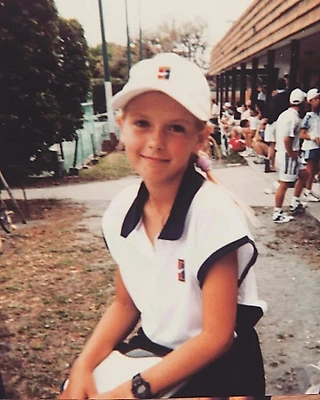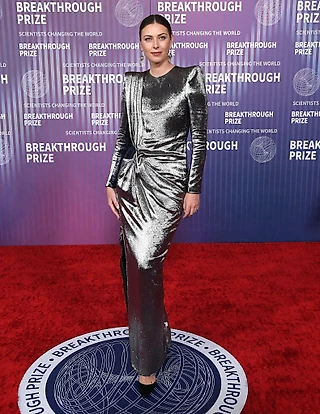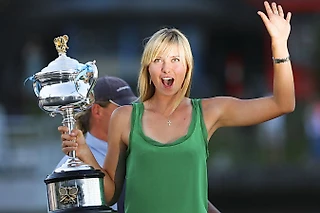Players focus on Grand Slams with payouts outpacing tour events
Nick McCarvel, Special for USA TODAY Sports 10:57 a.m. EDT May 29, 2016
PARIS — Martina Navratilova remembers her goals well from the 1987 season: She wanted to win every tournament she played.
Almost 30 years later, however, the priority among top players has shifted to a heavily-weighted system: It’s almost all about the majors, tennis’ Grand Slams, Navratilova notes, and the men’s and women’s main tours are taking a hit because of it.
“Now, players just want to win a major,” Navratilova told USA TODAY Sports in a phone interview last week. “Those are considered much bigger than a tour-level title. It’s just a different measuring stick than when I played and that’s fine, but people need to remember that the tour is what we’re built on. That’s where the rest of the season is played.”
As the WTA and ATP World Tours have continued to evolve, tennis’ four major events — the Australian Open, French Open, Wimbledon and U.S. Open — have ballooned, growing in stature, visibility and financial viability.
This year, Roland Garros will award more than €32 million in prize money ($35 million USD), up 14.2 percent from 2015. It’s an arms race among the Slams: Who can pay the most as the coffers continue to swell? The U.S. Open plans to pay $50 million in prize money by next year.
“We’re in a situation here – and we have to be honest and look ourselves in the mirror – where I feel that the players have too much [financial] dependency on the Slams,” said Steve Simon, the CEO of the WTA. “The Slams are the pillars of the game. That’s where history is made … But what we have to do is build our tour where the players are not dependent on four tournaments a year. We have to raise our compensation levels. We have to look at our calendar so that players can play smart and healthy. That’s in our future vision.”
The WTA has gone from paying out $23 million in total prize money in 1990 to $50 million in 2001. In 2013 it paid $118 million for 53 total events. Yet players, no matter their rank, obtain a higher percentage of their yearly income from the majors vs. tour events.
Simon, the former tournament director at the successful Indian Wells tour stop, has been in his role at the WTA for a little more than six months. He hopes to work more closely with tennis’ other entities, including the ATP World Tour and the International Tennis Federation, which oversees the four Grand Slams, to align goals.
Venus Williams, who helped lead the equal-pay movement at Wimbledon in 2007, is a member of the WTA’s player advisory council. She says the challenges the WTA now faces are “tricky.”
“It's tricky because there are so many [entities] that need attention,” she said. “The tournaments and different bodies, everybody needs a win. Everybody needs to walk out of the room feeling that they got something out of it. That’s not an easy thing to do.”
Milos Raonic, the top-ranked Canadian and world No. 9, says tour events are just as important to players as the Slams, even if that is not the public perception.
“I think that people are overlooking the importance of the [ATP] Masters to us,” said Raonic, referring to the series that includes the nine biggest tournaments on the men’s tour. “I think it's a little bit tragic to overlook the tour for the success of four Slams. I think people can still achieve great things and the Slams are part of that. I don't think it should be any different from what we do throughout the year. I think it's sort of the buildup.”
The discussion has many tiers: ATP Masters Series and WTA Premier events (which themselves are broken into three levels) have seen more success than their lower-billed counterparts.
“The majors and the large combined tour events continue to outpace the mid- to small-level tour events in prize money, prestige and public awareness,” said Jim Courier, the former world No. 1 and a Tennis Channel contributor.
Six combined events – Indian Wells, Miami, Madrid, Rome, Montreal/Toronto and Cincinnati – are the biggest on tour, while eight others operate men’s and women’s events concurrently. In total, 25 cities share events at some point during the calendar year, some concurrently.
“What that points to from my perspective is the need for more ATP/WTA schedule consultation and consolidation with the goal of more combined events at the ATP Masters 1000/WTA Premier level," Courier said.
No matter how you shake it, however, money talks. TV deals speak loudest: ESPN took over last year as the rights holder at the U.S. Open, paying the USTA some $70 million per year through 2025.
Unless the tours increase their pay grades, players will prioritize the majors because of their major paydays. That is not to say the Slams bear their growing importance solely because on their payout, but the money doesn't hurt.
“There is a huge gap” between the WTA and the Slams, said Lucie Safarova, a finalist here last year and also a member of the WTA advisory council. “It’s something we’d really like to improve on the WTA. On the other hand, I understand the smaller [WTA] events have to get better. We speak about it on the council a lot. We’re trying to make the best compromises possible.”
Small events have struggled on both tours. The USTA bought the Memphis event in 2014 to prevent it from moving overseas (it’s now under new ownership) and the state of Connecticut saved the WTA event in New Haven in 2015.
Lower-tier (termed International on the WTA and 250 on the ATP) events are consistently fighting to be financially viable. Between 2011 and 2016, 15 tournaments (nine WTA and six ATP) have either changed ownership, moved cities or ceased to exist at all.
While some are focused on staying alive, tour events are in danger of not keeping pace with the Slams.
“The tour is what made the Grand Slams the majors,” Navratilova said. “To me, we’re forgetting where we came from. It’s like – with the majors – we’re playing in the playoffs without the regular season.”
Eric Butorac, the ATP Player Council president, sees the men’s tour at a healthy spot, and the growth of the majors as a good thing.
“It’s true in any sport, the biggest events are getting bigger and the smaller events are not growing at the same rate,” said Butorac, an American doubles player. “If that’s where tennis is growing, I don’t think we should slow that growth. Tennis is a niche sport, but I think tennis goes beyond a niche sport four times a year. We don’t want to lose that. We want to make these events bigger, better, best.”
Simon agrees that having successful majors benefits his tour.
“The Slams have a healthy competition among them and competition is good, it fuels everyone to improve,” Simon said. “There’s nothing wrong with that. The more the Slams grow, the more that the respective tours grow, too. The WTA needs to continue to grow our business and be able to achieve the success and the opportunity that I believe is out there. With that, I think we decrease the players’ dependency on the Slams financially while growing where we are at in the marketplace. I think that’s critical.”
Guy Forget, tournament director at Roland Garros, sees rewards being handed out as they should: If the majors continue to grow, the money should be awarded appropriately.
“Often some say, ‘But why so much increase? Why such a margin?’ Forget told reporters before the tournament. “Because simply, we have the chance, in the Grand Slam tournaments, thanks to the success of our tournaments, our partnerships, our television rights, to have income that soared over the past decade. It’s normal, in the last four or five years, just to follow this trend and to benefit all players from this improvement.”
Robin Haase is the world No. 86 from the Netherlands, and at 29, has been on tour for over a decade. He says the prominence of the majors has only gone up due to one thing: Money.
“The reason why you play tennis is to win on the big stages,” he said. “The way that the Grand Slams have gotten more important is money-wise. That’s it.”
http://www.usatoday.com/story/sports/tennis/2016/05/29/grand-slams-payouts-wta-tour-atp/85123760/
>









